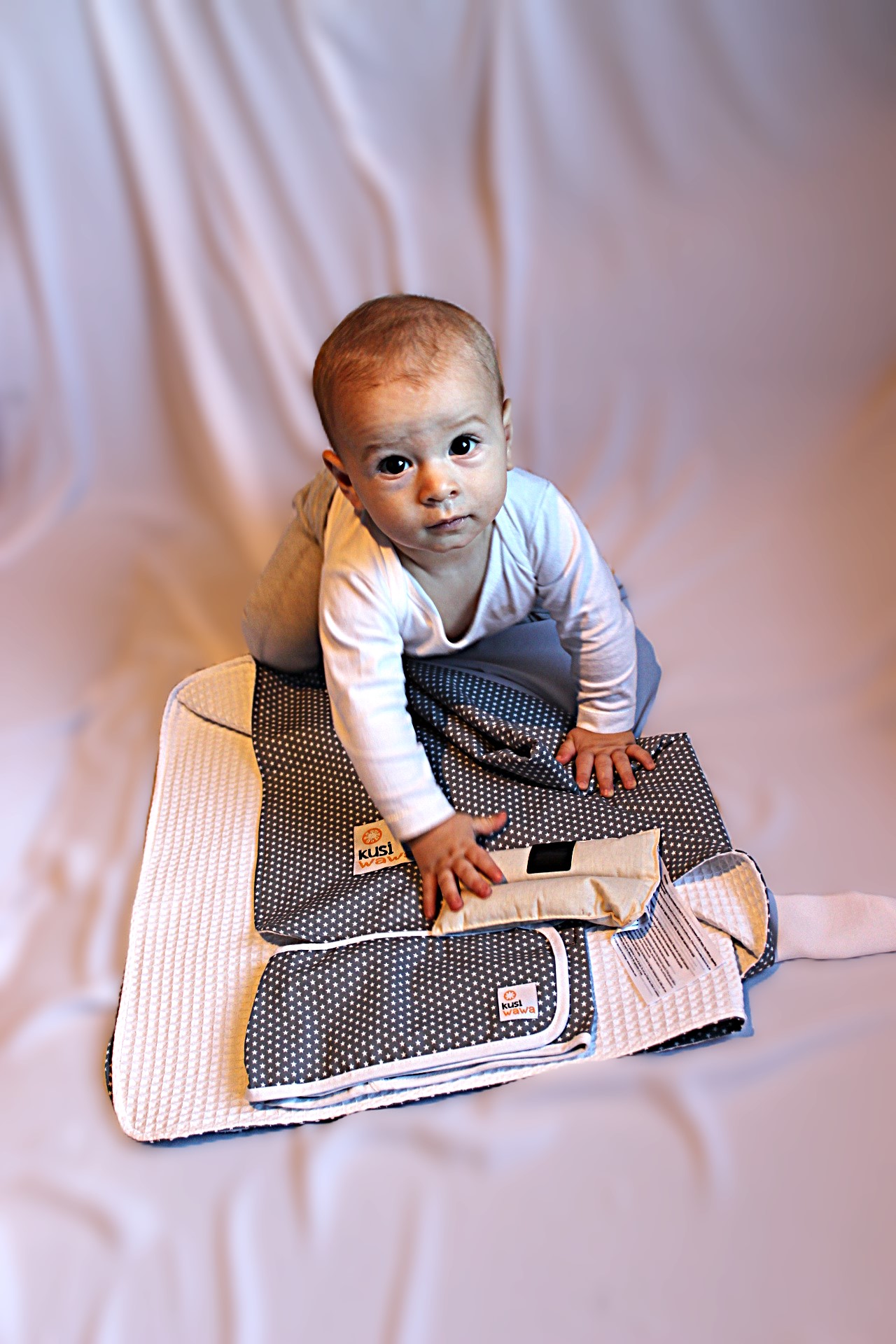Etiology of infantile colic
Etiology of Infantile Colic: Understanding the Causes of This Infant Syndrome 🤱💤
Infantile colic (CL) is a behavioral syndrome of unknown origin that affects healthy babies during their first four months of life. This disorder is characterized by episodes of inconsolable crying and intense irritability 😢, which often causes great distress in parents, who see their baby seem to suffer without an apparent cause.
Although crying in infants under two months of age can be variable, crying associated with colic has some specific characteristics, such as:
Paroxysmal: Each episode of colic has a clear beginning and end, unrelated to the baby's previous activities.
Qualitatively different: It is a more intense cry and with a higher tone than usual.
Hypertonia: A generalized tonic contraction occurs in bursts.
Inconsolable: The baby cannot be calmed, which increases the frustration of the parents.
What Do We Know About Its Etiology? 🔍
To date, the specific cause of infantile colic remains unknown. There are, however, factors that could influence its appearance, grouped into three main categories:
Gastrointestinal Factors: Some studies suggest that the immaturity of the digestive system or certain types of food intolerance could be related to CL.
Biological Factors: These include the role of the intestinal microbiota and possible imbalances in the baby's digestive processes.
Psychosocial Factors: This is the group we will focus on, as it seems to have a significant relationship with infantile colic.
The Importance of the Family Environment in Infantile Colic 👨👩👧
The interaction between colic and family dynamics is complex. Studies have shown that families with babies who suffer from colic generally have more problems with family structure and emotional state. Factors that are considered related include:
Baby's Temperament: Babies who are raised in calm and healthy environments tend to show less colic, while those with greater sensitivity to pain or external stimuli may be more predisposed.
Family Stress and Postpartum Depression: Postpartum depression and stress in the family environment are also linked to an increase in colic episodes.
Parental Behavior Modification: Fortunately, professional advice to teach parents how to effectively manage colic episodes can significantly reduce the time that babies cry, promoting a calmer and more well-being environment at home.
Reminder for Parents: There is No Guilt, Only Love and Learning 💛
If you have a colicky baby, it doesn't mean you're doing anything wrong or that you should feel guilty! In parenting, you learn every day, and the important thing is to give the best of ourselves with the knowledge we have. The arrival of a newborn is a real hurricane in family life; it changes routines, patterns, and brings new challenges, especially for the mother, who lives this stage accompanied by her friends the hormones, who also do their thing. 🌪️💖
So, in the midst of this whole process, the most important thing is to remember that love, support, and patience will always make the difference.
Infantile colic (CL) is a behavioral syndrome of unknown origin that affects healthy babies during their first four months of life. This disorder is characterized by episodes of inconsolable crying and intense irritability 😢, which often causes great distress in parents, who see their baby seem to suffer without an apparent cause.
Although crying in infants under two months of age can be variable, crying associated with colic has some specific characteristics, such as:
Paroxysmal: Each episode of colic has a clear beginning and end, unrelated to the baby's previous activities.
Qualitatively different: It is a more intense cry and with a higher tone than usual.
Hypertonia: A generalized tonic contraction occurs in bursts.
Inconsolable: The baby cannot be calmed, which increases the frustration of the parents.
What Do We Know About Its Etiology? 🔍
To date, the specific cause of infantile colic remains unknown. There are, however, factors that could influence its appearance, grouped into three main categories:
Gastrointestinal Factors: Some studies suggest that the immaturity of the digestive system or certain types of food intolerance could be related to CL.
Biological Factors: These include the role of the intestinal microbiota and possible imbalances in the baby's digestive processes.
Psychosocial Factors: This is the group we will focus on, as it seems to have a significant relationship with infantile colic.
The Importance of the Family Environment in Infantile Colic 👨👩👧
The interaction between colic and family dynamics is complex. Studies have shown that families with babies who suffer from colic generally have more problems with family structure and emotional state. Factors that are considered related include:
Baby's Temperament: Babies who are raised in calm and healthy environments tend to show less colic, while those with greater sensitivity to pain or external stimuli may be more predisposed.
Family Stress and Postpartum Depression: Postpartum depression and stress in the family environment are also linked to an increase in colic episodes.
Parental Behavior Modification: Fortunately, professional advice to teach parents how to effectively manage colic episodes can significantly reduce the time that babies cry, promoting a calmer and more well-being environment at home.
Reminder for Parents: There is No Guilt, Only Love and Learning 💛
If you have a colicky baby, it doesn't mean you're doing anything wrong or that you should feel guilty! In parenting, you learn every day, and the important thing is to give the best of ourselves with the knowledge we have. The arrival of a newborn is a real hurricane in family life; it changes routines, patterns, and brings new challenges, especially for the mother, who lives this stage accompanied by her friends the hormones, who also do their thing. 🌪️💖
So, in the midst of this whole process, the most important thing is to remember that love, support, and patience will always make the difference.

